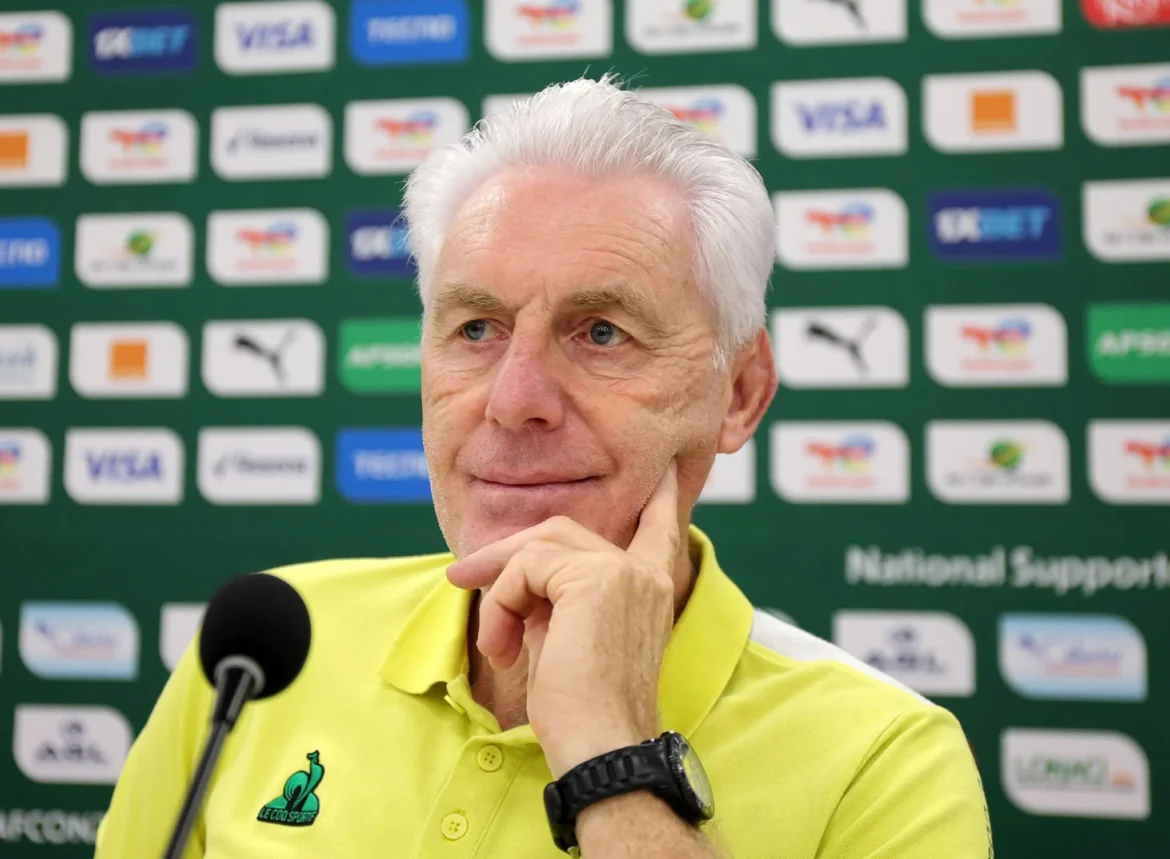Bafana Bafana head coach Hugo Broos has weighed in on the ongoing tensions between Cameroon national team coach Marc Brys and legendary former player Samuel Eto’o. In a recent interview, Broos provided some insight into the complex relationship between the two, revealing the underlying issues that have caused friction within the Cameroonian football setup.
Broos, who has had his own experience coaching in Africa, including a stint with the Cameroon national team, was candid in discussing the struggles Brys has faced in managing Eto’o, a football icon who still holds a significant influence in Cameroonian football. Eto’o, who is widely regarded as one of Africa’s greatest players, has been involved in a number of administrative roles within the Cameroon Football Federation (FECAFOOT) after retiring from professional football.
According to Broos, the problems between Brys and Eto’o stem from a clash of personalities and differing visions for Cameroonian football. “Marc Brys is a very experienced coach, but he’s faced a lot of challenges since taking over the Cameroon national team,” Broos explained. “Eto’o, being such an influential figure in the country, carries a lot of weight, and his presence has created tension in the relationship between the coach and the federation.”
Broos went on to explain that Eto’o’s powerful position within the Cameroon Football Federation has often put him at odds with Brys. “Eto’o is someone who has a lot of say in the footballing structure of the country, and his opinion is highly valued. But, of course, that can also create friction when the coach wants to implement his own ideas and make decisions without external influence,” Broos said. “Eto’o’s legacy in Cameroon is undeniable, but it can also make it difficult for a coach to make the necessary changes and progress without stepping on toes.”
The tensions between Brys and Eto’o came to light after several public disagreements regarding team selections, player management, and the general direction of the national team. Eto’o has been vocal in his views on Cameroonian football, often offering advice or criticizing decisions made by the coaching staff. While Eto’o’s passion for the country’s footballing success is clear, his comments have sometimes caused public rifts between him and Brys.
Broos believes that the situation is reflective of broader challenges faced by many African national teams, where former players with significant influence often find themselves at odds with coaches. “It’s not just Cameroon, this happens in many African countries,” Broos said. “Former greats like Eto’o still have a lot of power, but when they start getting involved in coaching decisions or criticizing the coach too much, it can disrupt the harmony within the team. It’s a delicate balance.”
Broos, who guided Cameroon to the Africa Cup of Nations title in 2017, also touched on the pressure coaches face when trying to juggle the expectations of both the players and the federation. “As a coach, you have to manage both the technical side of the game and the political side of the job. It’s not always easy to satisfy everyone, especially when there are powerful figures like Eto’o who want their voices heard.”
Despite the challenges, Broos remains confident that Brys can overcome the issues and find a way to work alongside Eto’o for the greater good of Cameroonian football. “It will take time and patience, but if Brys and Eto’o can find a way to respect each other’s roles, Cameroon can get back on track,” Broos concluded.
The situation between Brys and Eto’o remains an evolving story in African football, and many are watching closely to see how the two will resolve their differences moving forward. For now, both the coach and the legendary former player must navigate a delicate relationship, one that will ultimately shape the future of Cameroonian football.
